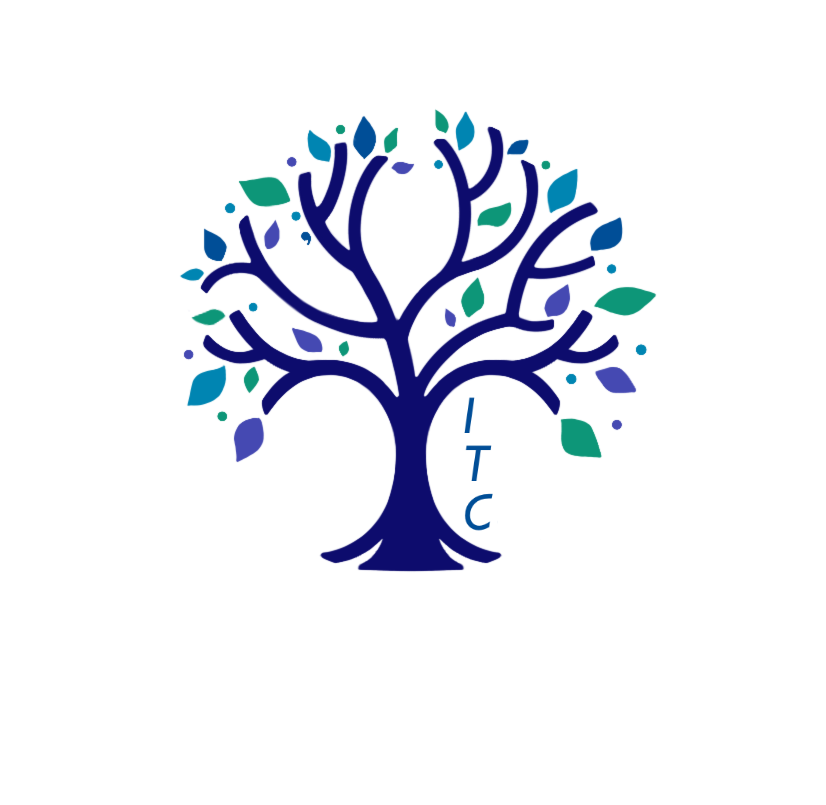The pain was something he couldn't get rid of…
When Daniel first walked into therapy, he didn’t know what he was hoping to find.
He had already decided that nothing could ever truly help him, but he was desperate for support. Daniel had spent years trying different approaches. He tried scores of medications, talking to friends, and pretending he was fine. Daniel tried to approach his family for support, but they told him that he was just sad, overreacting, or dramatic.
They told him to just push through and smile. Daniel tried these things for years. But the heaviness remained, pressing down on him in ways he couldn’t explain. It wasn’t just sadness. It was a hollowing. A slow erosion of self. Some days, it felt like he was watching his life from behind glass, disconnected, absent.
Other days, the thoughts crept in, quiet but insistent: What if I just disappeared? Would it matter?
Eventually, everything felt numb. Daniel found himself relying on self-harm and illicit drugs just to feel something. Deep down, he knew that these tactics might end up going too far and lead to tragedy.
Individual therapy became Daniel’s last hope to feel like he could heal from his invisible scars. A combination of somatic experiencing and traditional talk therapy allowed him to finally feel like he was heard for the first time.
Daniel did not feel like he was being judged, scolded, or told what to do. Instead of being guided through a myriad of “feel better” techniques, Daniel learned more about his emotional triggers. He was finally able to acknowledge the behavioral and mental patterns that kept him trapped in his depression.
Over time, Daniel noticed very subtle changes in his demeanor and thoughts. For the first time in many years, he no longer thought about suicide every day. Eventually, he began to feel less tired and much more authentic.
Daniel was finally able to set strong boundaries with his family, which allowed him to participate in more events. He was able to reconnect with past friends, return to his hobbies, and work towards a happier life that seemed so out of reach.

ITC specializes in a
PSYCHODYNAMIC approach to therapy.
At the heart of psychodynamic therapy is the belief that our past experiences shape the way we move through and experience the world.
Psychodynamic therapy is about making the unconscious, conscious. It’s about uncovering the patterns that have quietly dictated your life. Our patterns that feel impossible to break, emotions that overwhelm us, or the feeling of being stuck, are not random. Many of our struggles have roots in past experiences. They were shaped by relationships, early experiences, and the ways we learned to protect ourselves.
And yet, what once kept us safe can also keep us trapped. However, it can be so difficult to let go of these protective factors and build new ones. We will help. It’s not just about understanding these patterns but about shifting them. Awareness is powerful, but healing happens when we integrate that awareness into our lives in a way that fosters change. Let’s break down how this process unfolds.
Psychodynamic therapy is not about quick fixes. It is not about eliminating pain but about learning to navigate it with strength and clarity. It is about stepping out of survival mode and into a life that is intentionally yours.
This is not a journey you take alone.
In our work together, we will move at a pace that feels safe, exploring the past without becoming lost in it, understanding its influence without letting it define you.
Your story does not end with trauma, with pain, or with patterns that keep you stuck. Your story is still being written… through this work, you reclaim the power to choose what is best for you.
Healing is possible, not because the past disappears, but because you learn how to carry it differently.
The Role of Connection
True healing goes beyond intellectual understanding, it requires emotional integration. We need to this to experience what has long been buried. Many people come to therapy believing that simply understanding their pain means they can move past it.
While insight is an important first step, emotional healing demands more than simply knowing why we feel a certain way. It requires experiencing those emotions in a way that is safe and supported. This is why the therapeutic relationship is so important.
In psychodynamic therapy, the therapist-client relationship becomes a space where old wounds are not just acknowledged but actively worked through in real time.
If trust was broken in the past, therapy offers the possibility of experiencing a relationship where trust can be rebuilt.
If vulnerability once led to rejection, therapy provides a space where vulnerability is met with acceptance and understanding.
Through this process, we learn to understand, tolerate, and express our emotions in healthier ways. Many of us have spent years avoiding uncomfortable emotions like anger, sadness, or grief.
In therapy, we learn that emotions are not dangerous. Instead, emotions are simply signals, guiding us toward what needs attention. As we build emotional resilience, we begin to experience emotions as they arise, rather than pushing them away or feeling consumed by them. Over time, this shift allows us to engage with life with awareness, authenticity, and choice.
True healing occurs in safe and secure connection with others.
Our Approach to Healing
Breaking Old Patterns
Many of us developed protective strategies—like shutting down emotions, avoiding conflict, or always caring for others—that kept us safe in the past. But over time, these strategies become limiting.
Therapy helps you:
Recognize and release old coping patterns
Learn to feel emotions without being overwhelmed
Rebuild trust in yourself and in relationships
Move from survival mode into authentic living
What Healing Can Bring
Over time, clients describe therapy as a slow but powerful transformation:
Feeling calmer and less reactive
A stronger sense of self-worth
Deeper and safer relationships
Clarity about needs and desires
More freedom, joy, and connection
Healing isn’t about becoming someone new—it’s about coming home to yourself.
What Sessions Look Like
Individual therapy isn’t one-size-fits-all, but you can expect:
A safe space where you’re seen, heard, and validated
Gentle exploration of your patterns, emotions, and history
Somatic practices to regulate your nervous system
Collaborative insight into how your past shapes your present
Tools for boundaries, self-expression, and resilience
Sessions are typically 50 minutes, weekly or biweekly, in-person or online.
The Power of Choice
Trauma takes away our choice. Healing requires finding our ability to choose again.
Healing is not about becoming someone new but about returning to yourself fully, wholly, and with the freedom to choose the life you want to live.
Many of us move through life on autopilot or stuck in survival mode. We may find ourselves reacting rather than responding, caught in patterns we don’t even realize are shaping our decisions. Psychodynamic therapy helps us step out of these unconscious cycles and into awareness.
This awareness can help us embody our internal strength. This strength allows us to set boundaries where none existed, to engage in relationships that nourish rather than deplete, and listen to our own needs instead of prioritizing the expectations of others.
This is what true empowerment looks like. Not forcing ourselves to be different but allowing ourselves to be who we truly are.
Who We Serve
Our clinicians work with adults and teens (ages 14+) from diverse backgrounds and identities, including BIPOC, LGBTQIA+, first-generation, and immigrant communities. We know trauma is shaped not just by personal experience, but by cultural and systemic forces. Our therapy is culturally responsive, inclusive, and affirming.
At ITC, individual therapy blends psychodynamic therapy with somatic practices and mindfulness-based tools. We don’t rush or force you to tell your whole story. Instead, we move at your pace—building trust, safety, and stability before exploring deeper wounds.

We focus on a deep personal understanding and long-lasting healing through a combination of individual and somatic therapeutic approaches.
Individual Therapy in California
(San Diego • Los Angeles • Oceanside • Santa Monica • Telehealth Across CA)
When You Feel Stuck in Yourself
Maybe you’ve tried to hold it together for years—at work, in relationships, with family—but inside, you feel like something’s missing. You might notice patterns you can’t break: shutting down when you want to connect, people-pleasing even when it hurts, feeling anxious or numb when you wish you could just feel normal.
If you’ve ever wondered, “Why can’t I move past this?”—you’re not alone. And you don’t have to do it alone.
What Individual Therapy Can Help With
Individual therapy at ITC is designed for people navigating trauma, stress, or long-standing patterns that feel impossible to change.
We work with:
Trauma and complex PTSD
Anxiety, panic, or chronic worry
Depression, emptiness, or loss of motivation
Grief, loss, or major life transitions
Relationship and intimacy struggles
People-pleasing, perfectionism, or shame
Identity, cultural, or acculturation stress
Sexual trauma and boundary violations
Chronic suicidal thoughts or self-harm
Our therapy fees reflect the experience and specialties of each clinician. A limited number of sliding scale spots are available—please inquire.
Individual Therapy (50 min): $150–$275 per session
Our Approach to Trauma Therapy
At Integrative Trauma Collective, we blend psychodynamic therapy (exploring how the past shapes the present) with somatic healing (helping the body release trauma safely). We honor the pace your system needs—never rushing, never forcing.
Core principles in our trauma work:
The Triple S Experience: Safety, Stability, and Security are the foundation of every session.
Shame Healing: Shame silences survivors. We bring it into the light with compassion and validation.
Empowerment: Trauma steals power. Therapy helps you reclaim it—through boundaries, healthy anger, and self-respect.
Gentle Pacing: You’ll never be asked to retell your story before you’re ready. Healing begins with presence, not pressure.
Your story isn’t over. Healing allows you to carry your past differently—and step into a future that feels more authentic and free.
Our therapy fees reflect the experience and specialties of each clinician. A limited number of sliding scale spots are available—please inquire.
Individual Therapy (50 min): $150–$275 per session
Integrative EMDR Therapy in California
(San Diego • Los Angeles • Oceanside • Santa Monica • Telehealth Across CA)
When Talking Isn’t Enough
You may have been in therapy before—able to talk about your trauma with insight and even detail. But deep down, your body still carries the weight. Panic attacks may wake you at night. Triggers may strain your relationships. Intellectually, you “understand” what happened, but your nervous system hasn’t let go.
This is where Integrative EMDR can help—meeting both your mind and body, at your pace, in a relational space of safety.
Our therapy fees reflect the experience and specialties of each clinician. A limited number of sliding scale spots are available.
EMDR Fees: $150–$275 per 50 minute session
Somatic Experiencing® Therapy in California
(San Diego • Los Angeles • Oceanside • Telehealth Across CA)
Our therapy fees reflect the experience and specialties of each clinician. A limited number of sliding scale spots are available.
Somatic Experiencing Therapy Fees: $150–$275 per session
When Talking Isn’t Enough
Sometimes words alone can’t touch the depth of trauma. You may have shared your story in therapy before—but still feel frozen, anxious, or disconnected from your body. Maybe you understand your pain in words, but your body hasn’t caught up or trust that it’s safe. Trauma can leave us trapped in patterns of fight, flight, freeze, or fawn that talking alone can’t resolve.
That’s where Somatic Experiencing® (SE) comes in—a gentle, body-based therapy that helps your nervous system release trauma at a pace you can handle.
What Is Somatic Experiencing?
Somatic Experiencing (SE) is a trauma-healing approach developed by Dr. Peter Levine. It focuses on how trauma lives in the body—not just the mind.
Trauma overwhelms the nervous system, leaving us stuck in survival responses:
Fight → tension, anger, reactivity
Flight → anxiety, racing thoughts, panic
Freeze → numbness, shutdown, disconnection
Fawn → people-pleasing, self-abandonment
SE helps your body complete these survival cycles so you no longer feel trapped in them. Instead of pushing past your limits or re-telling every detail of your trauma, SE gently builds safety, stability, and empowerment from the inside out.
FEES & SCHEDULE
Payment & Insurance
Private Pay Only: ITC is out-of-network with insurance providers.
Superbills: We can provide superbills for potential insurance reimbursement.
Mentaya Partnership: We partner with Mentaya to help clients navigate reimbursement directly with insurance companies.
Payment Methods: All payments are processed via credit card (including HSA/FSA cards where applicable).
-
Yes. We offer a free 15-minute phone consultation to discuss your needs and ensure we’re a good fit.
-
We have a strict 24-hour cancellation policy. Sessions canceled within 24 hours of the appointment will be charged the full session fee.
-
Yes we can work with clients outside California for Workshops, Corporate Programs and Consultation and Coaching & Wellness that are all available virtually worldwide.
Therapy is available for California residents only at this time.
-
Therapy is best if you’re seeking support for trauma, anxiety, depression, relationships, or other clinical concerns. Therapy involves licensed clinicians and may include modalities like Somatic Experiencing or EMDR.
Coaching & Wellness is a better fit if you’re looking for somatic tools, nervous system education, spiritual or ancestral healing, or integration after plant medicine. It’s non-clinical and open worldwide.
If you’re unsure, schedule a free consultation and we’ll help you choose the right path.
-
Therapy is a licensed, clinical, evidence-based, focused on mental health and trauma recovery for California only at this time.
Coaching is non-clinical, worldwide, focused on growth, somatic tools, and body-based integration.
Workshops/Presentations are roup educational experiences designed for schools, communities, and organizations.
-
Therapy is not a “quick fix.” Some clients find short-term relief in a few months, while others choose longer-term work to explore deeper patterns and trauma. Your therapist will collaborate with you on goals and pacing so the process feels safe and sustainable.
-
Yes we offer group therapy that are facilitated by licensed clinicians, open to California residents only (pricing announced at enrollment).
Coaching & Wellness Groups are facilitated by non-clinical coaches and are open worldwide.
Retreats are multi-day immersive offerings, with pricing and tiers announced when registration opens.
Our therapy fees reflect the experience and specialties of each clinician. A limited number of sliding scale spots are available—please inquire.
-
-
-
-
Family Therapy (75–90 min): $225–$325 per session
-
Item description
Session Logistics
Standard Session Length: 50 minutes (individual therapy & coaching).
Extended Sessions: 75–90 minutes available for groups & trauma intensives.
Telehealth Availability: All therapy services are available via secure Telehealth at no additional cost.
Our 4 Branches of Care
At ITC, we know healing isn’t one-size-fits-all.
We offer four interconnected pathways, so you can find the support that meets you where you are.
-

Traditional Therapy (Telehealth & In Person for CA Residents)
Compassionate, somatically grounded therapy for individuals, couples, and families. Our clinicians specialize in trauma recovery, sexual trauma, relational healing, and intergenerational repair.
Individual • Couples • Family • Integrative EMDR • Somatic Experiencing
-

Coaching & Wellness (Worldwide)
Trauma-informed yoga, nervous system education, breathwork, and somatic coaching. These offerings create accessible, non-clinical spaces for regulation, embodiment, and spiritual connection.
Somatic Coaching • Yoga & Breathwork • Psychedelic Integration
-

Groups, Workshops & Retreats (Scheduled)
Practical and engaging trainings for schools, parents, and community groups. From nervous system education to burnout prevention, we equip communities with tools that support both children and adults.
-

Corporate Development & Consultation
Leadership programs and organizational wellness consultations. We help businesses and teams address burnout, strengthen communication, and create cultures where both productivity and people can thrive.
If You’re in Crisis
If you’re in immediate crisis, please call or text 988 (Suicide & Crisis Lifeline) or go to your nearest emergency room.










